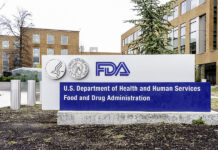
By Kari Barnes, Regulatory Standards Manager at TraceGains
Key Takeaways:
- The recent overturning of the Chevron Doctrine could lead to states increasing their role in food safety regulation, leading to a more complex landscape.
- Regulations may be shaped by case law, potentially delaying enforcement and causing confusion.
- The US may fall behind other countries in food safety regulations, impacting exports and consumer trust.
In June 2024, the United States Supreme Court made the decision to overturn the Chevron Doctrine, a precedent established in 1984 through the Supreme Court case Chevron USA Inc. v. National Resources Defense Council. The food and beverage industry should be aware of the significance of this action, and the potential ripple effects of the Supreme Court’s decision.
The Chevron case ruled that when a regulation is ambiguous or lacking specific detail, the enforcing agency has the authority to interpret it. For example, if a food safety regulation required “reasonably appropriate” measures, the Food and Drug Administration (FDA) would define what “reasonably appropriate” means in a given situation.
In effect, the overturn of the Chevron Doctrine limits the authority of federal regulatory agencies, including the FDA, to set rules and enforce policies based on their interpretation of the law. This major change at the federal level may lead to new complexities in food safety enforcement, and opens the door for FDA rules to be challenged and litigated.
Food and beverage brands should anticipate several potential outcomes:
State-level oversight continues to increase
With federal agencies having less power in enforcement and rule-making due to the overturn of the Chevron Doctrine, states may feel more empowered to fill perceived gaps in federal enforcement. This adds to a growing trend towards state-level oversight, as state legislatures play an increasing role in food safety and environmental regulation. For example, California recently passed aggressive legislation restricting certain food additives that are still federally allowed under FDA regulations. Similarly, California established Scope 3 carbon reporting requirements for large companies above and beyond what federal rules currently require. Food and beverage brands may need to keep a closer eye on shifting state policies such as these and be prepared to adapt to increasing state-level oversight of food safety.
Litigation shapes the future of policy
As the Chevron Doctrine overturn opens the door for future and existing regulations to face increased litigation, policies that were once set by the FDA and other agencies may increasingly be determined by case law. This could result in mixed messages and confusion as various legal jurisdictions and appellate courts play a larger role in interpreting regulations. Pending FDA actions, such as the FSMA rule for traceability (FSMA 204) and actions around salmonella contamination, may be impacted and their fate left uncertain.
The US falls out of step with international regulations
Federal agencies will become more dependent on Congress and the courts for rulemaking and enforcement, resulting in longer timelines to implement new rules. Slower action may cause the US to fall out of sync with international regulators, particularly in the EU. This diminished federal oversight could erode trust in American products abroad, which could potentially have a longer-term impact on US exports. Brands will need to take a more active role in monitoring and staying ahead of evolving overseas regulations to maintain access to those markets.
Consumers play a larger role in holding brands accountable
If the FDA faces challenges around its authority and must spend considerable time in court, that may draw resources away from its focus on food safety oversight. At the same time, consumers will still demand safe food and brands will want to continue to ensure their products are safe. As a result, having a strong quality and safety program could become a positive differentiator for brands, providing an opportunity to reassure consumers that their products are safe to consume and held to the highest quality standards.
Takeaways for food and beverage brands
The overturning of the Chevron Doctrine marks a potentially significant shift in food safety oversight. While it’s too early to understand the precise impacts, food and beverage brands should be prepared for a shift in the establishment and enforcement of food safety rules. Federal oversight may be reduced or delayed, state-level regulations may vary, litigation may become a key enforcement tool, and consumers may become more influential.
Food and beverage brands can get ahead of these changes by keeping a close eye on the regulatory landscape, embracing proactive compliance strategies, leveraging supply chain data, and maintaining clear communication with consumers, regulators, and suppliers. Companies that prepare now for the possible outcomes of the Chevron Doctrine overturn can turn the potential challenges into opportunities for innovation and leadership in food safety and sustainability.
 Kari Barnes is Regulatory Standards Manager at TraceGains and is actively working to expand existing U.S. standards into global standards for the food and beverage and dietary supplements industries. With 20 years of leadership experience, she is well-versed in product regulatory compliance, food quality and safety, auditing, risk management, and lean manufacturing processes.
Kari Barnes is Regulatory Standards Manager at TraceGains and is actively working to expand existing U.S. standards into global standards for the food and beverage and dietary supplements industries. With 20 years of leadership experience, she is well-versed in product regulatory compliance, food quality and safety, auditing, risk management, and lean manufacturing processes.







